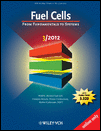
Fuel Cells
Scope & Guideline
Driving the Future of Energy with Cutting-edge Fuel Cell Research.
Introduction
Aims and Scopes
- Fuel Cell Design and Performance Optimization:
Research on innovative designs and optimization methods to enhance the efficiency and performance of different types of fuel cells, including PEMFC, SOFC, and microbial fuel cells. - Electrochemical Processes and Catalysis:
Studies investigating the electrochemical reactions involved in fuel cells, including the development of catalysts and their impact on fuel cell efficiency and longevity. - Material Science for Fuel Cells:
Exploration of new materials for fuel cell components such as electrodes, membranes, and bipolar plates, focusing on their properties, compatibility, and performance under operational conditions. - Durability and Degradation Mechanisms:
Research on the factors affecting the durability of fuel cells, including aging effects, degradation mechanisms, and strategies for improving the lifespan of fuel cells. - Integration with Renewable Energy Systems:
Studies on the integration of fuel cells with renewable energy sources, examining hybrid systems and energy management strategies to enhance sustainability and efficiency. - Innovative Applications of Fuel Cells:
Research exploring new applications for fuel cell technology, including portable power systems, transportation, and grid energy storage.
Trending and Emerging
- Hybrid Energy Systems:
Increasing research on hybrid systems that integrate fuel cells with other energy sources, such as solar and wind, showcasing the journal's shift towards sustainable energy solutions. - Advanced Materials and Nanotechnology:
A growing emphasis on the development and application of advanced materials, including nanomaterials, for improving fuel cell performance and efficiency. - Machine Learning and AI Applications:
The integration of machine learning and artificial intelligence in fuel cell research, focusing on predictive modeling and optimization of fuel cell systems. - Bioelectrochemical Systems:
Emerging interest in microbial fuel cells and bioelectrochemical systems, emphasizing their potential for waste treatment and renewable energy generation. - Durability Testing Protocols:
An increase in the development of standardized testing protocols for assessing the durability and performance of fuel cells under realistic operating conditions. - Environmental Impact Studies:
Research focusing on the environmental impacts of fuel cell technologies, including life cycle assessments and sustainability analyses, reflecting a broader concern for ecological implications.
Declining or Waning
- Basic Theoretical Studies:
There has been a noticeable decline in purely theoretical studies or simulations of fuel cell processes, as recent publications emphasize experimental validation and practical applications. - Conventional Catalyst Materials:
Research focusing on traditional catalyst materials, such as platinum, is decreasing in favor of exploring non-precious metal catalysts and novel catalytic systems that are more sustainable and cost-effective. - Single-Fuel Cell Analysis:
The focus has shifted away from isolated studies on individual fuel cell types towards more comprehensive investigations of hybrid systems and multi-cell configurations that offer greater practical relevance. - Low-Temperature Fuel Cells:
Research on low-temperature fuel cells, specifically those operating at below room temperature, appears to be less frequent, possibly due to the growing emphasis on high-temperature and solid oxide technologies.
Similar Journals
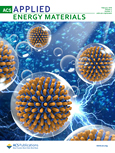
ACS Applied Energy Materials
Connecting Ideas to Drive Energy InnovationACS Applied Energy Materials, published by the American Chemical Society, is a premier journal dedicated to the cutting-edge fields of energy materials, chemical engineering, and electrochemistry. With an impressive impact factor and consistently ranked in the Q1 category across multiple disciplines—including Chemical Engineering, Electrical and Electronic Engineering, and Materials Chemistry—this journal serves as a pivotal platform for researchers and professionals focused on innovative solutions for energy systems and materials science. Since its inception in 2018, ACS Applied Energy Materials has been committed to disseminating high-quality research that addresses pressing energy challenges, promoting sustainability and efficiency in various applications. Its competitive Scopus rankings reflect the journal's influence and relevance within the academic community, making it an essential resource for anyone looking to stay at the forefront of energy materials research.

Fuels
Pioneering Research for a Sustainable Energy FutureFuels is a premier open-access journal published by MDPI, focusing on the multifaceted field of fuel science, technology, and applications. Since its inception in 2020, this journal (E-ISSN: 2673-3994) has rapidly become a vital resource for researchers, professionals, and students engaged in the exploration of sustainable fuel alternatives, combustion technologies, and energy conversion processes. Located in Basel, Switzerland, Fuels aims to disseminate high-quality research that not only advances academic understanding but also addresses real-world energy challenges. By embracing an open-access format, it ensures that significant findings are readily available to the global scientific community, helping to foster collaboration and innovation in the transition to cleaner energy solutions. With an emphasis on interdisciplinary research and practical applications, Fuels is poised to be a leading journal that shapes the future of energy technologies.

Cell Reports Physical Science
Advancing the Frontiers of Physical ScienceCell Reports Physical Science is a leading open-access journal published by Cell Press, based in the United States, that has quickly established itself as a pivotal platform for the dissemination of research in diverse scientific fields. Launched in 2020, this journal focuses on advancing knowledge in areas such as Chemistry, Energy, Engineering, Materials Science, and Physics and Astronomy. With an impressive impact factor, it is ranked Q1 across all major categories, demonstrating its high relevance and influence in the academic community. Notably, it enjoys a remarkable reputation, reflected in its Scopus rankings, positioning it within the top tiers of its respective fields. As an open-access journal, Cell Reports Physical Science ensures that research is freely accessible, promoting collaboration and innovation globally. Researchers, professionals, and students are encouraged to submit their groundbreaking work to contribute to the ever-evolving conversation in physical sciences.
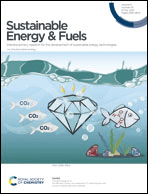
Sustainable Energy & Fuels
Shaping Tomorrow's Energy Landscape TodaySustainable Energy & Fuels is a leading journal published by the Royal Society of Chemistry, dedicated to advancing knowledge in the fields of energy engineering, fuel technology, and renewable energy solutions. With its ISSN of 2398-4902 and notable Q1 status in both Energy Engineering and Power Technology as well as Fuel Technology, this journal ranks impressively in the Scopus database, ensuring a strong platform for disseminating impactful research. The journal spans a comprehensive scope aimed at addressing the global challenges of sustainable energy, including innovative methodologies and technologies that promote environmental sustainability. Although it operates under a traditional access model, the journal is committed to providing high-quality content that engages researchers, professionals, and students alike. With significant contributions expected through 2024, Sustainable Energy & Fuels stands at the forefront of facilitating scholarly communication, inspiring advancements in energy technologies that align with sustainability goals.
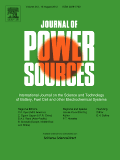
JOURNAL OF POWER SOURCES
Pioneering Research in Renewable and Traditional EnergyThe Journal of Power Sources is a premier multidisciplinary journal published by Elsevier, focusing on the advancement of technology and science in the field of power sources. Established in 1976, it showcases high-quality research spanning traditional and emerging technologies related to energy storage, conversion, and utilization. With a strong commitment to impact, this journal ranks in the Q1 quartile for several categories, including Electrical and Electronic Engineering, Energy Engineering and Power Technology, and Renewable Energy, Sustainability, and the Environment, reflecting its broad influence and esteemed contributions to the field. The journal is highly regarded within Scopus, holding impressive rankings such as Rank #33 in Electrical and Electronic Engineering and Rank #13 in Energy Engineering, among others, positioning it well within the scientific community. While the journal is not open access, it remains pivotal for professionals, researchers, and students seeking to stay at the forefront of developments in power sources. The continuity of its publication until 2024 further ensures that it will remain a key resource for innovative research and technological advancements in energy solutions.
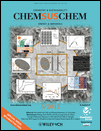
ChemSusChem
Shaping the Future of Energy and Environmental SolutionsChemSusChem is a premier interdisciplinary journal, published by WILEY-V C H VERLAG GMBH, that focuses on the critical fields of Chemical Engineering, Energy, Environmental Chemistry, and Materials Science. Since its inception in 2008, the journal has consistently maintained a Q1 ranking across multiple categories, highlighting its role as a vital resource for researchers and professionals dedicated to advancing sustainable chemical processes and technologies. With an impressive impact factor, it ranks 12th in General Chemical Engineering and is highly regarded within its scopes, indicating the journal's commitment to publishing high-quality, innovative research that addresses global challenges in energy and environmental sustainability. Though it operates on a subscription model, its contributions are essential for those in academia and industry seeking cutting-edge developments in sustainable chemistry. As it approaches its convergence span through 2024, ChemSusChem continues to shape the future of sustainable chemistry, making it a must-read for students, researchers, and practitioners alike.
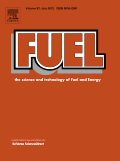
Fuel
Unleashing Potential in Chemical Engineering and EnergyFuel is a premier international journal published by Elsevier Science Ltd, showcasing critical advancements and insights in the fields of chemical engineering, energy engineering, power technology, and organic chemistry. With a significant history dating back to 1922 and continuous publication from 1970 to 2025, Fuel holds an impressive position in the academic community, reflected in its top-tier rankings—Q1 in multiple categories including Fuel Technology and Chemical Engineering for the year 2023. This journal is dedicated to exploring innovative research and application of fuel technologies, driving forward the dialogue on sustainable energy solutions. Researchers and professionals alike will find Fuel to be an essential resource, providing access to high-impact articles that contribute to advancements in methodologies and applications, while navigating the complexities of global energy challenges.
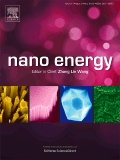
Nano Energy
Innovating Tomorrow's Energy SolutionsNano Energy is a premier journal published by Elsevier, focused on the dynamic intersection of nano-technology and energy solutions. Since its inception in 2012, this high-impact journal has made significant strides in advancing research across multiple disciplines, showcasing groundbreaking studies in Electrical and Electronic Engineering, Materials Science, and Renewable Energy. With an impressive Impact Factor that places it in the Q1 category of these fields—including a distinguished rank of #6 in Electrical Engineering and #9 in Renewable Energy on Scopus—the journal serves as a vital resource for academics and practitioners alike. Nano Energy aims to disseminate innovative research and developments that contribute to the sustainable energy landscape, thereby addressing pressing global energy challenges. Researchers and professionals seeking to stay at the forefront of nanotechnology applications in energy generation and efficiency will find this journal an indispensable platform for sharing knowledge and driving impact.

Electrochemical Energy Reviews
Pioneering Insights in Energy Engineering and Material ScienceElectrochemical Energy Reviews, published by SpringerNature, serves as an essential platform for the dissemination of cutting-edge research in the fields of electrochemistry, material science, and energy engineering. With an impressive impact factor and ranked in the Q1 category across multiple disciplines including Chemical Engineering and Energy Technology, this journal highlights its commitment to advancing knowledge and innovation within the energy sector. Operating since 2018, the journal not only provides a valuable resource for researchers and professionals but also invites contributions from students and emerging scholars interested in the pivotal role of electrochemical processes in sustainable energy solutions. Published in Germany and widely accessible to the global research community, Electrochemical Energy Reviews is an indispensable reference for those keen on exploring the future of energy technologies.
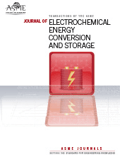
Journal of Electrochemical Energy Conversion and Storage
Transforming Energy Storage and ConversionThe Journal of Electrochemical Energy Conversion and Storage, published by ASME, is a premier platform for cutting-edge research in the fields of electrochemistry, energy engineering, and materials science. With an ISSN of 2381-6872 and an E-ISSN of 2381-6910, this journal aims to disseminate high-quality articles that contribute to the understanding and application of energy conversion and storage technologies. Notably recognized in the 2023 Category Quartiles as Q2 in multiple categories including Electronic, Optical and Magnetic Materials, Energy Engineering and Power Technology, and Mechanical Engineering, it reflects a strong academic impact within its field. The journal also boasts competitive Scopus rankings, highlighting its relevance and influence across disciplines. Operating under an open access model, the journal ensures that research findings are widely accessible, fostering collaboration and innovation among researchers, professionals, and students globally. As we move toward a more sustainable future, the Journal of Electrochemical Energy Conversion and Storage plays a critical role in advancing technologies that promise to reshape how we harness and utilize energy.